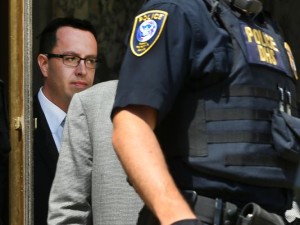As part of our Regional Collaboration Project, on Wednesday afternoon, May 18 at 3:00pm (Eastern), Shared Hope International will host a national briefing call on proactive, collaborative approaches to combatting human trafficking during large events, such as collegiate and professional sporting events or conventions. As cities across the U.S. host large events, leaders benefit from observing and capitalizing on the successes and challenges of task forces and collaborative efforts demonstrated in other regions. The call will cover a wide array of issues and prove helpful to first responders, local and federal law enforcement agencies, victim advocates, health care professionals, service providers, community organizers, policy advocates, and general volunteers.
Questions such as “when should preparations begin?” will be addressed, as timing continues to surface as a primary factor. Even leaders of successful efforts consistently report that they wish they had started earlier with substantive preparations.
The panelists will share a variety of tested tactics, campaigns and investigative operations. One consistent recommendation is that strategic collaboration and planning are needed to address human trafficking during large-scale events. Not only do thousands of individuals visit cities to attend high-profile events, but volunteers and other groups may also travel to the city in efforts to address human trafficking and raise awareness. Thus, the importance of communication and united efforts between law enforcement agencies will be highlighted, as well as collaboration between law enforcement and non-governmental entities, such as the hospitality industry and service providers, which can enable better identification of victims.
For example, conducting targeted trainings within all levels of law enforcement and to personnel within key industries, as well as developing outreach plans to reach potential victims, could increase reports and needed information regarding suspected trafficking activity. Additionally, considering conscious engagement and use of media through a collaborative lens can enable stronger, more consistent messaging within campaigns designed to deter demand and facilitate shifting perspectives away from viewing victims as criminals.
Another theme which will be stressed is the need to ensure access to services for victims, through non-punitive processes. To that end, the panelists will include reasons and methods to prioritize and ensure victim-centered approaches during investigations, as well as establishing various avenues for victims to access services.
These following leaders will share successes and challenges surrounding the 2015 and 2016 Super Bowls:
- Agent Marty Parker, Federal Bureau of Investigation; Oakland, California;
- Sergeant Kurtis Stenderup, Santa Clara County Sheriff’s Office; Santa Clara, California;
- Christopher Watson, Program Director, Sexually Exploited Minor Program Bay Area Women Against Rape, BAWAR; Oakland, California;
- Special Supervisory Agent Ryan Blay, Federal Bureau of Investigation, Civil Rights Unit/Human Trafficking Program Manager; Washington, D.C.;
- Sergeant Clay Sutherlin, Phoenix Police Department; Phoenix, Arizona;
- Savannah Sanders, Human Trafficking Services Manager, SAFE (Safeguarding Adolescents from Exploitation) Action Project, Sojourner Center.







